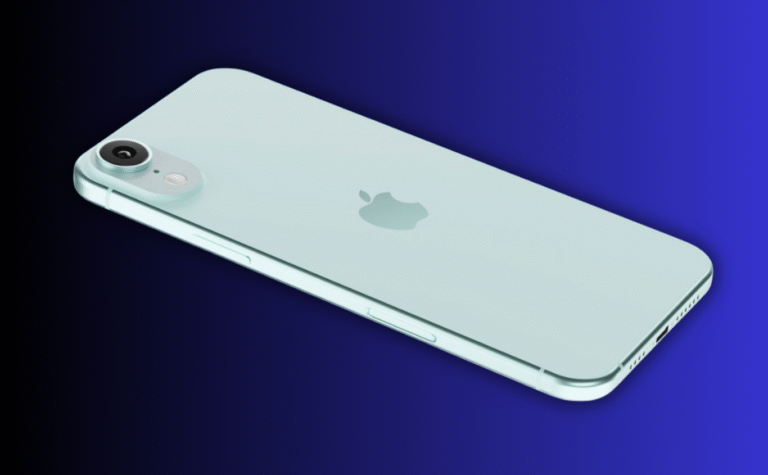
Apple’s Groundbreaking AI Model Detects Pregnancy with 92% Accuracy Using Wearable Data
Revolutionizing Women’s Health Monitoring with AI and Wearables
Apple is taking a significant leap forward in health technology with the development of an advanced artificial intelligence (AI) model capable of detecting early pregnancy with remarkable precision. According to a recently published scientific study, this AI-powered innovation can identify signs of pregnancy with 92% accuracy, potentially transforming how women track and manage their reproductive health. Designed using behavioral data from Apple Watch and iPhone users, this model demonstrates how wearable technology is becoming an essential tool in modern healthcare.
Understanding Apple’s Wearable Behavior Model (WBM)
The research paper, titled “Beyond Sensor Data: Foundation Models of Behavioral Data from Wearables Improve Health Predictions,” presents an innovative approach called the Wearable Behavior Model (WBM).Unlike traditional health monitoring systems that rely solely on physical sensors, this AI model interprets complex behavioral patterns collected from wearables to predict physiological states, including pregnancy.
How the AI Model Works
This intelligent system analyzes a range of high-level health indicators, including:
- Sleep quality
- Heart rate variability
- Movement patterns and activity levels
By interpreting fluctuations in these metrics, the AI can not only confirm pregnancy but also monitor physical changes throughout the different stages. This continuous tracking helps provide insights that are far more personalized and proactive than traditional health assessments.
Massive Dataset Strengthens Accuracy
To ensure the model’s accuracy and reliability, researchers utilized an extensive and diverse dataset, including:
- Over 2.5 billion hours of behavioral data from Apple wearables
- 430 pregnancy cases, each ending in either standard or cesarean delivery
- 24,000+ non-pregnant women as control data for comparison
The inclusion of such a large and varied sample helped fine-tune the AI, allowing it to distinguish subtle behavioral and physiological differences with impressive accuracy.
Transforming Raw Sensor Data into Predictive Health Insights
What makes this model especially powerful is its ability to convert chaotic and unstructured raw sensor data into meaningful behavioral insights. According to the study’s authors, these behavioral metrics are filtered and processed through a series of advanced algorithms designed to align with known physiological changes during pregnancy.
This high-level processing allows the system to bypass the noise often found in raw data, focusing instead on patterns that correlate strongly with biological shifts. The result? A more intelligent, more adaptive prediction system that enhances early detection and overall health monitoring.
Future Integration with Apple Watch and iPhone
Experts suggest that this AI capability could soon be integrated into Apple’s existing health ecosystem, particularly within the Apple Watch and iPhone’s Health app. This integration would allow women to benefit from:
- Non-invasive pregnancy detection
- Early alerts for potential health issues
- Continuous tracking of pregnancy-related changes
- More informed discussions with healthcare providers
The addition of AI-based pregnancy detection would represent a significant upgrade to the Apple Watch’s current health monitoring suite, which already includes heart tracking, ovulation predictions, menstrual cycle tracking, and blood oxygen monitoring.
Beyond Pregnancy: A New Era of Predictive Health
While the spotlight is currently on pregnancy detection, the broader implications of Apple’s Wearable Behavior Model extend far beyond reproductive health. The researchers believe that this model can also be trained to detect other health complications, such as:
- Cardiovascular abnormalities
- Hormonal imbalances
- Sleep disorders
- Chronic fatigue or metabolic changes
The AI model opens a new chapter in predictive health analytics, one where wearable data is continuously evaluated to provide early warnings and support timely intervention.
Ethical Considerations and User Privacy
As with any innovation involving personal health data, privacy and ethical use remain critical. Apple has maintained a strong stance on user privacy, emphasizing that any use of sensitive health data—especially concerning reproductive health—must be handled with the highest standards of data protection. It’s expected that users will have complete control over what data is shared, how it’s processed, and who can access it.
Final Thoughts: Pioneering the Future of Smart Health Technology
Apple’s AI-powered pregnancy detection model is more than a technological breakthrough—it’s a glimpse into the future of personalized healthcare. With wearables becoming more intelligent and more intuitive, users can expect a new wave of proactive health tools that not only inform but also empower. The 92% accuracy rate achieved by this model sets a high benchmark and proves that AI, when ethically and intelligently applied, can dramatically enhance our ability to detect and manage health conditions early.
As Apple continues to expand its role in health innovation, the potential for wearable devices to act as early diagnostic tools—not just fitness trackers—is quickly becoming a reality.










